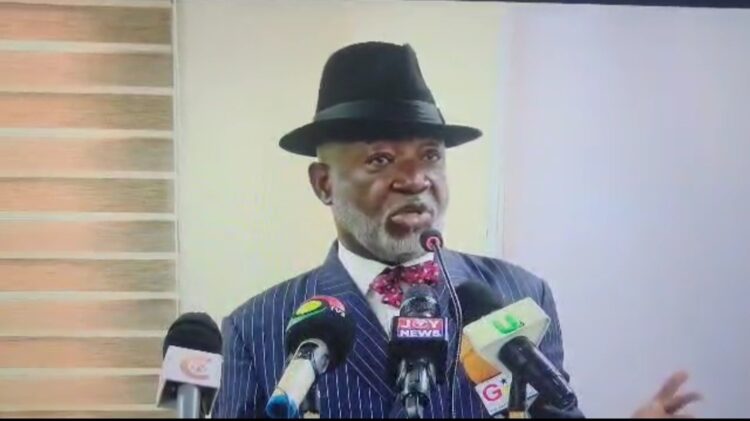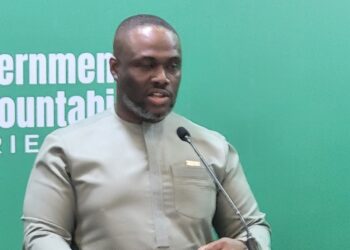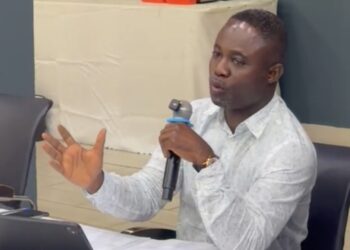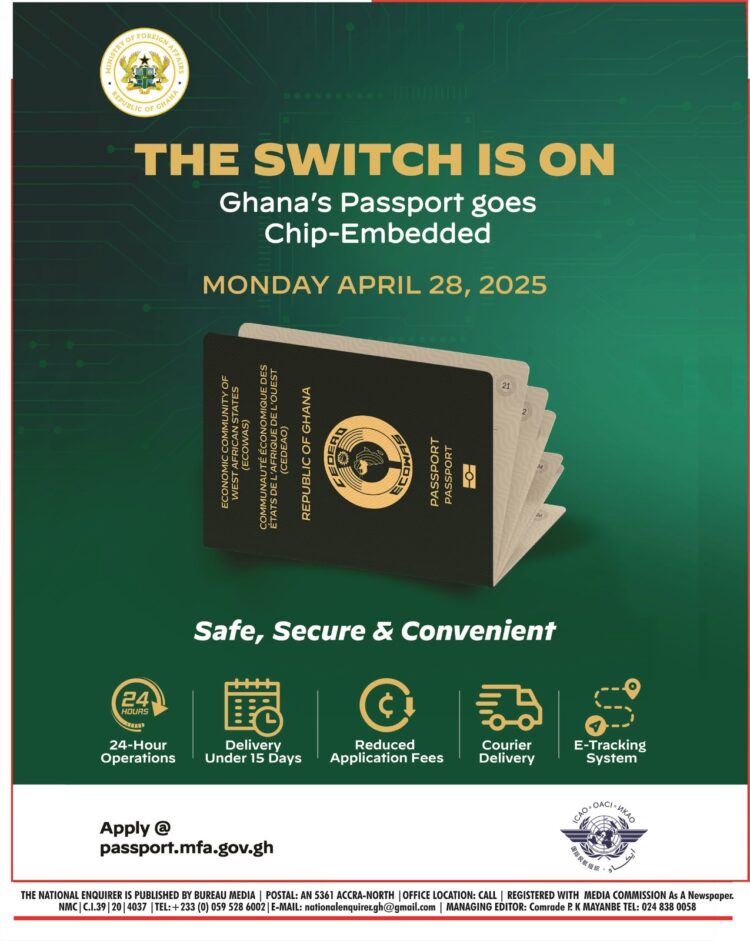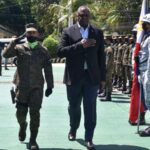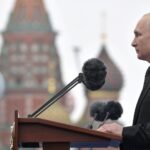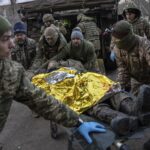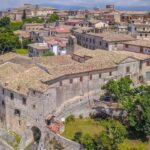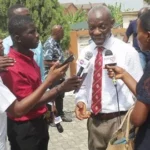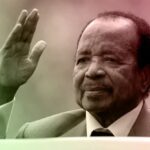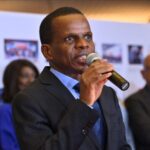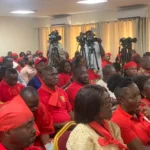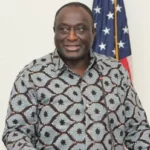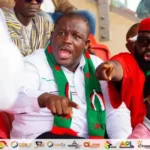In political history, parties rise and fall, not merely because of the vagaries of democracy, but often because of leadership choices, complacency, and the failure to heed warning signals. The New Patriotic Party (NPP), once hailed as the strongest political machinery in Ghanaian politics, has in less than a decade witnessed a steady and devastating decline that threatens its very foundation.
This decline is evident when one carefully examines the parliamentary trajectory of the Party:
• In 2016, the NPP recorded a historic victory, winning 169 parliamentary seats; the largest parliamentary majority in Ghana’s Fourth Republic. That election was not only a testament to the Party’s organizational strength, but also to its resonance with the Ghanaian electorate.
• By 2020, the story had shifted dramatically. The Party, though retaining the presidency, saw its parliamentary representation collapse to 137 seats, resulting in a hung parliament and undermining the very stability of governance. The warning bells rang loudly, but they went unheeded.
• In 2024, the NPP suffered its worst defeat in history, declining to a humiliating 88 parliamentary seats. And as though fate wanted to underscore the depth of the crisis, the Akwatia by-election further reduced the Party to 87 seats, stripping it of any moral claim to be a governing alternative in the near future.
This statistical journey from 169 to 137 to 87 is not a mere numerical decline. It is the narrative of a once-mighty elephant crippled by internal fractures, poor leadership, and strategic missteps at the national level. It is the chronicle of a Party that has lost touch with its grassroots, abandoned its tradition of meritocracy, and tolerated arrogance in place of humility, exclusion in place of inclusion, and mediocrity in place of competence.
The Case Against the Current National Executives
The current national leadership must bear responsibility for this collapse. Leadership, by its very nature, is about stewardship, accountability, and results. Where results consistently show retrogression, leadership cannot remain immune from consequences.
The executives, entrusted with the sacred duty of managing the Party’s electoral fortunes, have instead presided over its systematic disintegration:
1. Failure of Strategy: From 2016 to 2024, the Party’s electoral strategies have been unimaginative, reactive, and disconnected from the realities on the ground.
2. Breakdown of Grassroots Structures: Once the lifeblood of the NPP, polling station executives and constituency operatives now feel neglected, alienated, and abandoned.
3. Erosion of Trust: The widespread perception that leadership serves narrow interests rather than the collective good has deepened disaffection and fueled apathy among supporters.
4. Moral and Ethical Lapses: The Party that once stood for integrity and accountability now finds itself tainted with accusations of favoritism, patronage, and lack of transparency.
Beyond these structural failures, several specific developments underscore the incapacity of the current leadership:
• Failure in the 2024 Elections: Their stewardship in the 2024 elections was not just bad, but abysmally poor. There was no proper coordination, resulting in lapses in operational and organizational planning. I personally played a key role in the 2024 elections, traveling across the country with my team, and the information we gathered was damning. The Party had lost touch with its base, not because our tradition had lost relevance, but because leadership failed to inspire, organize, and reconnect. This is a betrayal of the grassroots spirit that has always driven the NPP to victory.
• Vacuum in Leadership: The absence of the National Chairman and his First Vice Chairman has left a leadership vacuum that the General Secretary, Justin Kodua Frimpong, and the National Organizer, Henry Nana Boakye, have failed to fill. Instead of providing clarity and direction in this vacuum, their actions and inactions have compounded the sense of drift. The result is a Party without authority at the top, exposed to confusion, indiscipline, and paralysis.
• By-Election Failures: The two by-elections held after the 2024 General Elections further exposed the leadership crisis.
• In Ablekuma North, the Party’s leadership initially announced it would not contest the by-election. However, due to lack of authority and coordination, the Parliamentary Candidate; Nana Akua Owusu Afriyie went ahead to contest on the Party’s ticket regardless, and leadership did nothing. This is not the NPP we once knew. In 1992, when the Party collectively boycotted the parliamentary elections, the discipline was absolute, and no candidate dared go against the decision of leadership. That was real leadership. Today, we are faced with rudderless executives whose words carry no weight.
• In Akwatia, the public revelations of the Third Vice Chairman, Alhaji Masawudu Osman, confirmed what insiders already knew: there was no proper preparation or coordination. This absence of leadership not only led to defeat but reduced our parliamentary seats to 87, further weakening our standing in Parliament. With the NDC commanding 185 seats, the balance of power has tilted dangerously, leaving the NPP incapable of effectively checking government excesses. This defeat has not only embarrassed the Party but has brought shame to the entire Danquah-Busia-Dombo tradition.
The Constitutional Gap and the Need for Action
The NPP constitution, regrettably, fails to provide explicit provisions for removing a national leadership that has become unfit for purpose or incapable of carrying out its duties effectively. This lacuna cannot serve as an excuse for inaction. When leadership fails so spectacularly, the Party must rise to the occasion, innovate, and forge consensus to safeguard its survival.
On this basis, I am calling for a broad consensus across the Party to remove the current National Leadership and constitute an Interim Committee to lead for now. The constitution may not spell it out, but history and political necessity demand it.
The Way Forward: An Interim Committee
At this critical juncture, the NPP must summon the courage to act decisively. The Party cannot continue on autopilot while hemorrhaging credibility and relevance. The first and most urgent step must be the immediate removal of the current national executives.
In their place, an Interim Committee of proven, respected, and neutral elders and technocrats must be constituted to:
• Supervise the day-to-day affairs of the Party.
• Restore confidence and cohesion among disillusioned grassroots.
• Oversee transparent and credible internal elections.
• Rebuild the Party’s broken structures and reconnect with the ordinary Ghanaian.
This interim leadership will not be about personalities or personal ambitions, but about salvaging the Party from imminent collapse.
Reasons Why the Party Must Stand
The NPP is not just another political organization; it is the only Party that has consistently thought about the ordinary Ghanaian and implemented bold social intervention policies to transform lives. From President John Agyekum Kufuor’s landmark National Health Insurance Scheme (NHIS), School Feeding Programme, and Free Maternal Care, through President Nana Addo Dankwa Akufo-Addo’s Free Senior High School (Free SHS), Planting for Food and Jobs, One District One Factory (1D1F), and the ongoing Digitalization Agenda, the NPP has always championed the cause of the ordinary citizen. These interventions have touched millions of families, expanded access to education and healthcare, boosted agriculture, and opened opportunities for jobs and industrial growth.
By contrast, the National Democratic Congress (NDC) has often failed to sustain or expand these life-changing initiatives. The NHIS nearly collapsed under their watch, the School Feeding Programme suffered delays and mismanagement, and critical agricultural initiatives such as fertilizer subsidies and youth employment programs were riddled with corruption and inefficiency. While the NPP has sought to build and innovate, the NDC’s record is largely one of neglect and reversal.
This contrast highlights why the survival of the NPP is not just a partisan issue, but a national necessity. Ghanaians cannot afford to lose the only political tradition that has consistently prioritized social interventions for the benefit of the masses. That is precisely why we cannot allow this great tradition to go extinct due to the failures of the current national executives. To protect this legacy and preserve the Party for future generations, we must urgently remove the National Leadership and install an Interim Committee capable of restoring the NPP to its rightful place as the hope of the Ghanaian people.
A Matter of Survival
The NPP cannot afford business as usual. To do nothing is to invite political oblivion. A Party that once commanded the confidence of millions cannot continue to bleed members, votes, and legitimacy. The time has come for painful but necessary action.
This is not a call born of bitterness. It is a call grounded in truth, in love for the Party, and in fidelity to the generations that look to the NPP for leadership and hope. The elephant is wounded, but not dead. With decisive action, it can rise again. But without urgent leadership renewal, history will record that the custodians of today stood idly by as the great elephant was led into political extinction.
The choice before us is stark: renew or perish.
For the survival of the NPP, and for the preservation of its tradition, the national executives must go now.
We need to act, and it should be now!


